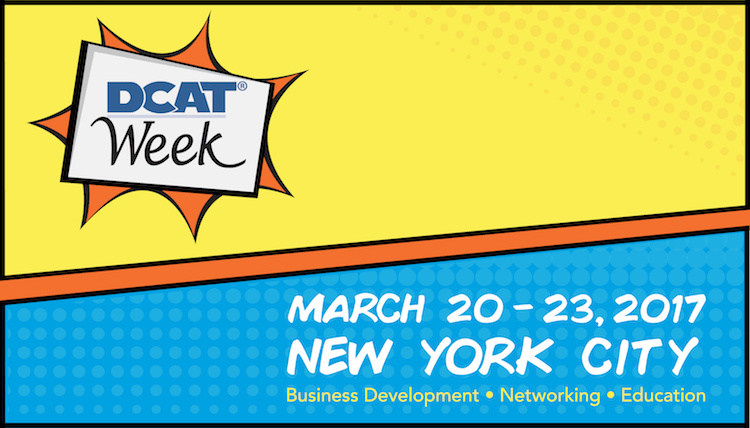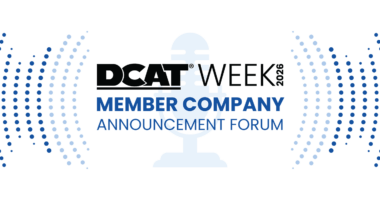BMS, Pfizer, J&J, and Amgen Examine Best Practices in Sourcing and Procurement
How can pharmaceutical companies take sourcing, procurement, and supply management to the next level?.
Pharmaceutical companies, contract development and manufacturing organizations (CDMOs), contract manufacturing organizations (CMOs), and suppliers are contending with an evolving pharmaceutical manufacturing value chain marked by increased product complexity, greater technological demands, and elongated supply chains while confronting the ever-present need to assure supply and quality At DCAT Week’s education program, The Future of Sourcing and Procurement, which will be on Wednesday March 22, executives from Bristol-Myers Squibb, Pfizer, Johnson & Johnson, and Amgen share first-hand experience on company initiatives in talent development, supplier-enabled innovation, materials management for complex supply chains, and value-based metrics for measuring supplier performance.
Talent development
Sourcing and procurement organizations face a fundamental issue: developing and managing the talent in their organization that can address evolving manufacturing, technological, and supply-chain requirements in meeting demand for direct materials supply. So what will berequired of the sourcing/category manager of the future? Cecilia Luz Cariaga, director, sourcing excellence, R&D, Bristol-Myers Squibb, will offer a vision of the future and the key elements of the company’s talent acquisition and capability development program.
Supplier-enabled innovation
Leveraging the benefits of supplier-enabled innovation is an important way for pharmaceutical companies to realize value for their operations, improve their bottom line, and potentially gain competitive advantage. How can supplier innovation be best cultivated with specific ideas for implementation? Drawing on models used by GE, Roche, and Disney, Maura Hobson, manager, global procurement, Janssen Pharmaceuticals, part of Johnson & Johnson (J&J), will share insight at the DCAT Week education program on J&J’s new Center of Excellence (CoE) Supplier Innovation and how the company is partnering with its suppliers to bring innovation to fruition. Darcy Birse, PhD, global executive director, GE Healthcare Life Sciences, will provide first-hand experience from the supplier perspective on how ideas are generated and developed for implementation.
Materials management for complex supply chains
As new products become more innovative through the use of new technologies, the complexity of sourcing increases. Antibody drug conjugates (ADCs), composed of a small-molecule, often a cytotoxic compound, linked to a monoclonal antibody, is an example of such a complex product. The product requires chemical production for the small-molecule, and if a cytotoxic molecule, high-potency manufacturing that requires specialized conditions for high-containment manufacturing, including cleanroom conditions and related operator expertise to ensure the proper environmental, safety, and health conditions. Chemistry services for conjugation to link the small molecule to the monoclonal antibody are then required, and the monoclonal antibody, a biologic, has to be manufactured separately. This drug substance is formulated and manufactured into the drug product also under high-containment manufacturing. At the DCAT Week’s education program, The Future of Sourcing and Procurement, Firelli Alonso, PhD, senior director, external supply, BioTherapeutics Pharmaceutical Sciences, Pfizer Biotech, will provide best practices for managing internal and external manufacturing networks for ADCs.
Supplier performance: value-based metrics
Pharmaceutical companies use a variety of metrics to evaluate their suppliers. Metrics relating to costs, on-time delivery, and making product to specification are commonly used, but are these metrics sufficient to evaluate the performance of suppliers. In truly strategic and collaborative partnerships in external development and manufacturing, how can companies measure the benefits of value-creation activities, such as supplier-enabled innovation, risk mitigation, and other ways used to generate greater value? In a panel discussion of at the DCAT Week’s education program, The Future of Sourcing and Procurement, several leading pharmaceutical companies (Bristol-Myers Squibb, Johnson & Johnson, and Amgen) will provide examples of the supplier metrics that they are using to evaluate supplier performance to drive value. Offering perspectives are: Keith Robinson, associate director, global supplier performance and development, Bristol-Myers Squibb; Marilyn Jacobs, director, global business excellence, Janssen Supply Group, LLC., a Johnson & Johnson company; and Rod A. MacLea, director, supply chain, Amgen.
Further information on The Future of Sourcing and Procurement, including how to register, may be found here.







